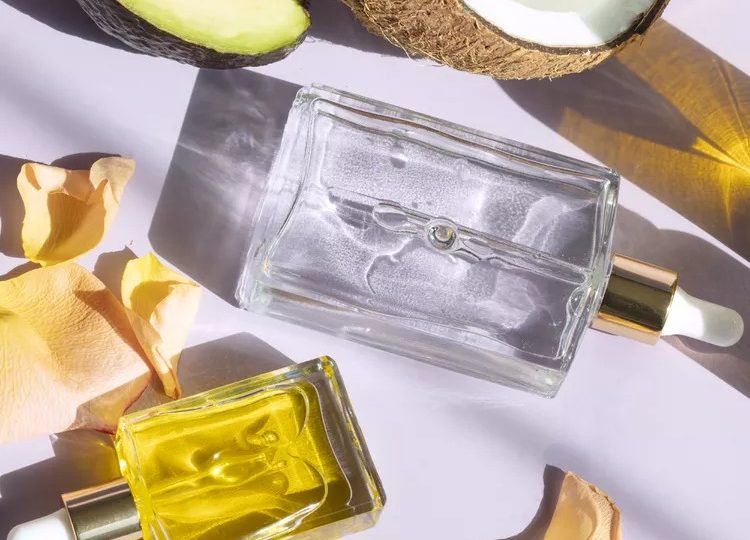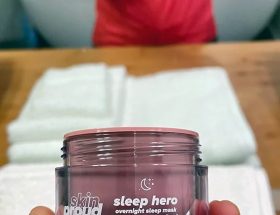Everything You Need to Know About Using Carrier Oils for Skin
Healthy oils are a panacea for skin concerns, and when used correctly, can deliver serious moisture that your skin craves. Carrier oils, or oils derived from a nut, seed, fruit, or plant, can be used alone or in conjunction with essential oils for specialized results, often healing skin in the process. With a basic knowledge of oils and skin type, you can become a skincare formulator, creating a bespoke regimen to naturally nourish your complexion.
Ahead, we tapped a dermatologist and essential oil expert for everything you need to know about using carrier oils for a silky, healthy glow.
FEATURED VIDEO
DIY Clay Mask Recipes For Glowing Skin
MEET THE EXPERT
A member of Byrdie’s Beauty & Wellness Review Board, Hope Gillerman is an aromatic healer and essential oil formulator. She is the founder of H.Gillerman Organics, an award-winning, certified organic essential oil line. Hope has written books and taught on the subject of essential oils, and has been working in the wellness space for over 40 years.
Shereene Idriss, MD, is a board certified dermatologist who specializes in facial aesthetics and rejuvenation.
What Is a Carrier Oil?
When formulating skincare products with essential oils, aromatherapists use a carrier oil as essential oils are too concentrated and can cause skin irritations if used on the skin directly. A carrier oil not only dilutes the essential oil, but acts as a vehicle of suspension, if you will, delivering a host of powerful and nourishing effects in the process. Essential oil formulator and aromatherapist, Hope Gillerman explains. “The most versatile suspension of essential oils is in a botanical oil, or what aromatherapists call a ‘carrier oil,'” she says.
“Essential oil blends diluted in carrier oils are ideal for massage and hydrotherapy (baths) as well as for skincare on the face, body, hair, feet, and nail bed.”
What Is a Carrier Oil?
Carrier oils are plant oils—such as avocado or coconut—used as a vehicle to deliver essential oils. They help to dilute the highly concentrated nature of essential oils to cut down on skin irritation.
Used on their own or as a base in many common skincare products, carrier oils are a go-to ingredient because of their natural composition. “Carrier oils are a fully active ingredient for inclusion in serums, face oils, nurturing masks, cleansers, scrubs, creams, lotions and balms,” says Gillerman. “Unrefined, unbleached, unfiltered oils expressed with minimal heat retain more of the nutrients of oil found in the nut, seed, or fruit.” Common carrier oils include rosehip, jojoba, vitamin E, sunflower, and coconut.
“They are loaded with essential fatty acids and vitamins that help nurture skin health and promote healing,” explains Gillerman.
Use carrier oils on damp skin for easy absorption.
How to Choose a Carrier Oil for Your Skin Type
When choosing a carrier oil to use either on its own or as a base for an essential oil blend, it’s important to consider your skin type. “Not all oils are created equal,” says Idriss. “Some are heavier in weight and tend to be occlusive whereas others are more lightweight and volatile. For instance, if you tend to produce more oils, I would opt for a lightweight carrier oil such as jojoba oil. If you are more on the dry side, then avocado oil tends to be loaded with fatty acids and is more occlusive in nature.”
Gillerman recommends you look for a carrier oil that has a high oleic content, which means it “offers quick, deep absorption that won’t leave you feeling oily and penetrates into the deeper layers of the skin.” Additionally, look for carrier oils that contain high levels of nutrients including essential fatty acids like linoleic acid and punicic acid, and palmitoleic acid, as well as vitamins A, K, D, C, E, she explains. These types of acids are known to deliver skin radiance and a natural glow by helping skin lock in moisture.
You also want to look for carrier oils that contain phytosterols, which helps skin regulate transepidermal water loss (TEWL), or when water passes out of the outer layer of the skin.1 This is a natural process that occurs due to low-humidity and other drying factors. Certain carrier oils can help keep TEWL in check, which means your skin will maintain the plumpness associated with a moisturized complexion. In other words, carrier oils can slow the signs of aging and general skin degradation.
Some added benefits of carrier oils include regeneration, according to Gillerman, which means they are fantastic at healing wounds and preventing scarring. “Many botanical oils are multi-functional and can work for more than one skin type. They can also benefit dry or mature skin, sun damage and dark spots, oily and combination, sensitive, irritated, or broken skin.”
Idriss adds that certain carrier oils “are thought to be helpful with various types of skin conditions because of unique attributes.” Below, find some top common carrier oils for skincare known to help heal various concerns.
Rosehip
Gillerman says it’s a “non-greasy oil loaded with antioxidants, vitamin A/retinoic acid and all three essential fatty acids (Omega-3, -6, and -9).” She notes it’s associated with “regeneration of mature skin, scarring, burns, reducing redness and dark spots, and evening skin tone. Use after surgery.”










